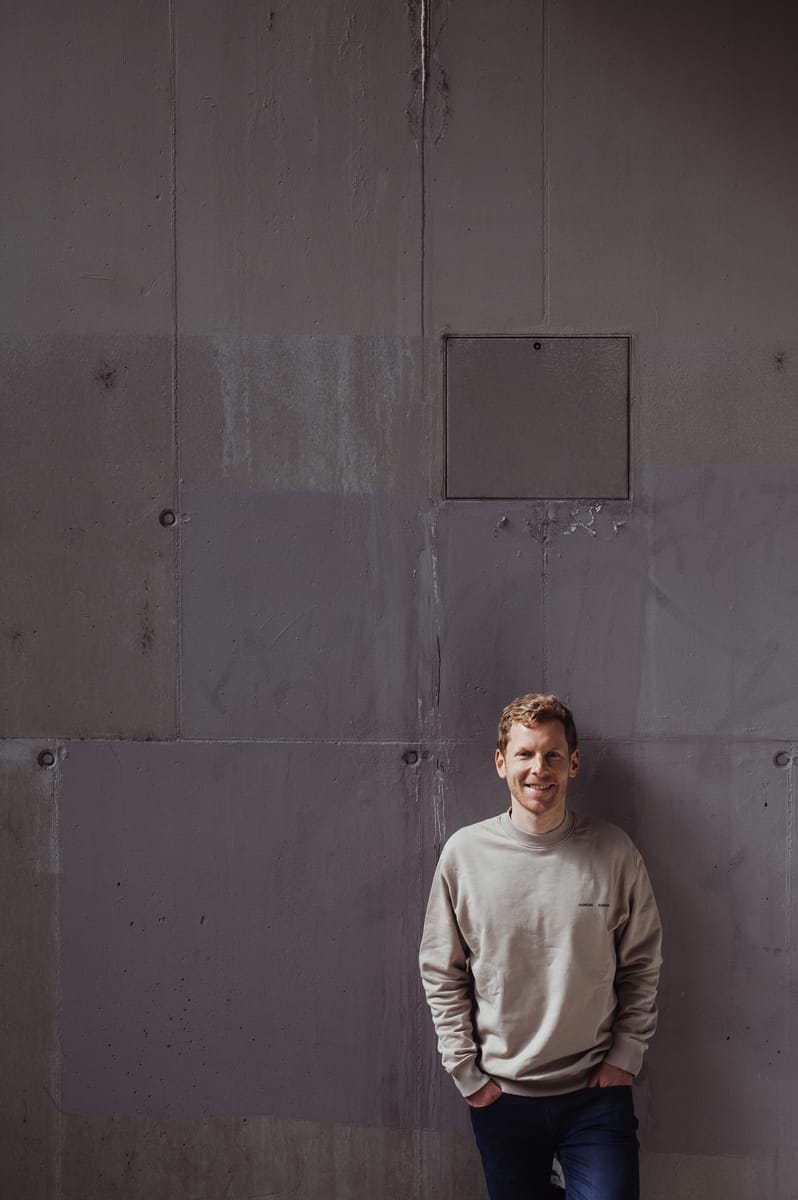Dear hustlers, founders, operators and visionaries,
What actually works in GTM today? Not more AI tools. Not more “personalized” cold emails. In this episode, Patrick Spychalski shares how his hands-on work with Clay led to founding The Kiln - a team helping B2B sales and marketing teams cut through the noise and build GTM systems that actually scale.
We talk about what’s broken in outreach today, what most teams get wrong when using AI, and how the rise of the GTM engineer role is quietly changing how modern GTM teams operate. This one’s for anyone rethinking their stack, their workflows - or how to stay relevant in a landscape shifting fast.
In the meantime: Follow the Gradient and stay tuned!
PS: Has this e-mail been forwarded to you? Sign up here.
How to stand out in a saturated market with AI
What you will get out of this episode
In our conversation, Patrick shares:
How to build modern outreach strategies that actually stand out
Why AI-generated emails are failing — and what to do instead
How to adopt the GTM engineer mindset and bridge tech with strategy
How to identify the most valuable tools without falling into “AI tool paralysis”
and much more!
Our main take away’s
Outreach needs reinvention, not repetition: Patrick makes it clear: what used to work in cold outreach no longer cuts it. Saturation, infrastructure complexity, and a flood of low-quality AI content have made generic approaches ineffective. Instead, go-to-market teams must think like creatives and deliver real value up front. Sometimes even building custom tools or dashboards for prospects.
AI should empower, not replace, your team: The hype around replacing sales roles with AI is misguided. Patrick’s view is sharp: AI is best used to reduce low-leverage work and amplify skilled people but not replace them. Whether through automating research or supporting semi-templated messaging, the key is strategy first, tools second.
The GTM engineer* is a game-changing role: As AI tools grow more complex, a new role has emerged to bridge strategic intent and technical execution. GTM engineers blend sales insight with tool fluency, serving as architects of automated workflows that actually work. Their product-like thinking brings structure and repeatability to modern outreach.
Start with value, then choose your tools: Don’t let tool obsession drive your strategy. Patrick urges teams to begin by mapping their current processes and envisioning an ideal, value-driven state. Only then should they explore automation. This approach prevents distraction and grounds experimentation in real outcomes, not hype.
* we will have a whole episode on that topic! Stay tuned!
Additional material on the topic
Patrick’s newsletter: GTM Cookbook
How to reach out to Patrick
You said teams often misuse AI because they start with tools instead of strategy. What’s a simple 30-minute workshop prompt teams can use to flip that?
A workshop prompt we use with all of our clients is, if you were given a perfect assembly of all-knowing team members to build a system for you, how would you imagine that system looks? If you were released from the limitations of technology, what would the ideal mind-map of what you're building look like? This is a tough question to answer, and requires real thought, but it's important to use this heuristic because it opens your mind to the possibilities of what can be done now with AI.
What is your must-have tool set in order to ace it today as a gtm team member?
1. Clay 2. N8N 3. Instantly or Smartlead 4. HeyReach 5. Exa.ai
Give us an example of an “AI-assisted outreach” message that actually worked. What made it stand out?

What books, podcasts, articles help you keep up with actionable insights about AI application?
Eric Nowoslawski and Brandon Charleston both have incredible YouTube channels. Those are honestly where I would go, at least for AI in GTM. Otherwise, I just scroll LinkedIn and Twitter (while following all of the major LLM businesses like OpenAI, Anthropic, etc) to get news.
What’s one advice, founders should actually ignore?
Honestly, just about all of it. The journey of a founder is completely individual, and there doesn't seem to be a "correct" way to do it. I think the only pieces of advice that hold ground are "work really hard", "don't give up", and "try to add as much value to your end consumer as possible"
What are habits, activities or rituals that keep you sane (while scaling your business)?
I try to work out and clean my room before work every day. I really believe that what you do in the first hour of your day will dictate the rest of it. I also try to never work on Sundays, so I can have a day to reset.
What is one “growth hack” that has a positive impact on you or the company?
Business- getting over "cringe mountain" and posting every day on LinkedIn
Health- keeping an exercise routine that you absolutely refuse to break
Personal- making time to be with people you love, even if it negatively impacts business or health

Follow the Gradient is a weekly newsletter and podcast by the serial founders Melanie Gabriel & Christian Woese about how to build a business in Europe while staying sane.










